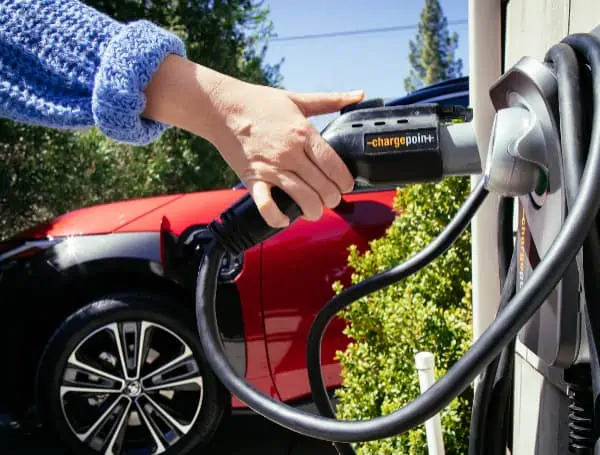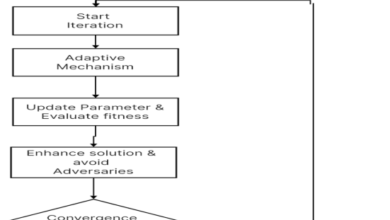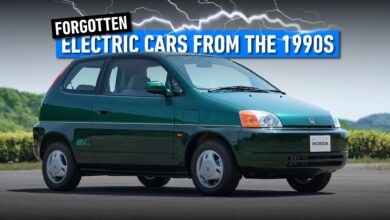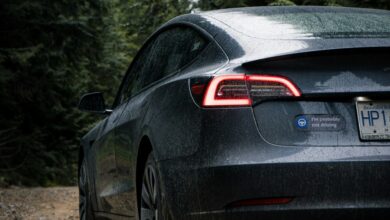India’s Ather is challenging Chinese imported EV scooters
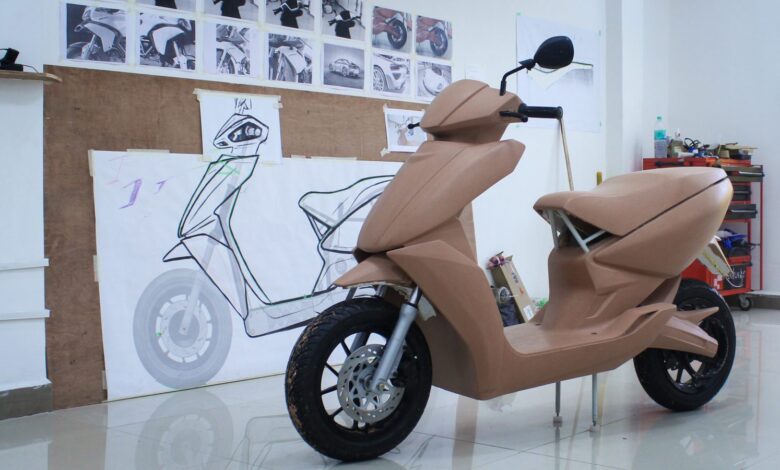
When Tarun Mehta took the stage at a convention center in Bengaluru on a hot April day, a crowd of nearly 4,000 people cheered and applauded him.
Mehta, the co-founder and CEO of Ather Energy, one of India’s leading electric scooter startups, was unveiling the company’s latest offering: the Rizta scooter.
As five shiny scooters were rolled onto the stage, Mehta spoke passionately about the features of the “family” vehicle, including the largest seat ever on a scooter, a front trunk, a socket to charge devices, skid control, a dashboard that can display WhatsApp notifications, and the option to link the vehicle to Alexa for updates on the last parked location and battery status.
The audience — which included Ather’s customers, electric-vehicle enthusiasts, reviewers, and social media influencers — seemed impressed with the scooter. Within weeks of the event, Indian YouTube was flooded with videos comparing the newly launched Rizta to the e-scooters sold by legacy bikemaker Honda. Several of them questioned if the two-wheeler was an “Ola killer,” referring to one of India’s biggest EV scooter companies.
Rizta is the seventh model released by Ather Energy, a decade-old Indian electric scooter startup that has made space for itself in the world’s largest two-wheeler market by focusing on design and innovation. In a country where legacy homegrown players and Chinese brands fight neck and neck, Ather has sold over 226,000 scooters as of June 14. It currently holds an 11% share of India’s growing e-scooter market.
The company is now eyeing international expansion: In 2023, it started selling in neighboring Nepal, and is planning to enter Southeast Asia, Latin America, and Europe. According to media reports, Ather is planning a public listing later this year, and setting up a second factory in India with an investment of 1,000 crore rupees (over $119 million).
Before Ather, electric two-wheelers in India were largely Chinese imports that had less power, lower capacity, and were slow-moving, according to Ravi Gadepalli, an independent expert on electric mobility and public transport who works as a consultant with the Asian Development Bank. He told Rest of World that Ather has brought in product design innovation, sleek design, and “the kind of vehicle which is closer to what the Indian market wants.” The company has built a small but loyal fan base in India, Gadepalli said.
Ather was founded by Mehta and his classmate Swapnil Jain when they were studying at the Indian Institute of Technology Madras (IIT-M).
Courtesy of Ather
The name for the company came before the product, Jain told Rest of World. In 2009, while they were still in college, Mehta and Jain dreamed of setting up a clean-energy company called Ather Energy, derived from the ancient Greek term that means “pure air.”
After graduation, Mehta started working at Indian automotive manufacturer Ashok Leyland while Jain joined General Motors. These were short-lived stints; within a year, the duo was back at IIT-M to continue work on Ather. At the time, they were toying with building and selling lithium-ion battery packs to EV manufacturers. Soon, they decided to make a high-quality, fully electric scooter.
“Back in 2013, there were no local benchmarks or standards. Given India’s demanding diversity in weather and terrain, we knew that localization was the key to success,” Mehta told Rest of World earlier this year.
For the first five years, Ather focused on research and innovation around battery design, battery pack manufacturing, thermal management, software, and data management. In 2014, the company raised its first funding of $65,340 from IIT-M alumnus Srini V Srinivasan, according to startup data platform Tracxn.
In 2018, Ather set up a small factory in Bengaluru, which initially manufactured just one electric scooter every nine days.
Around this time, Gadepalli recalled, his peers at think tanks, advocacy groups, research firms, and government agencies — including India’s transport secretaries — would visit Ather’s office to “learn from their CEO what innovations Ather is making,” as they had not seen such technology before. “From that perspective, they were definitely the pioneers,” he said.
In December 2020, Ather set up a larger facility in the industrial city of Hosur, home to factories of large automakers such as Ashok Leyland and TVS Motors.
“We knew that localization was the key to success.”
Jain credits the initial years spent on research as one of the reasons for Ather’s success. “If you look at a spec-level comparison, you might feel ‘okay, somebody else also has it, and Ather also has it,’” he said. “But then, when you look at the details of each of the features … you can see the small things that curate the magical experience.”
Even now, a third of Ather’s 3,000 employees are dedicated to research and development. The company “experimented so much in the sector, creating the roles, the competencies,” Sunitha Lal, Ather’s chief human resources officer, told Rest of World.
Ather has filed 212 patents in India and five others internationally, the company told Rest of World. Some of its innovations include the reverse-park assist, which Ather pioneered in scooters and trademarked in India. The technology was later used by legacy scooter makers Bajaj and TVS. Ather has also worked with Google to improve Maps navigation on its dashboard, including providing live traffic updates.
“The Ather 450X [an earlier model] stands out as the most fun-to-ride electric scooter available in the Indian market today,” auto publication BikeDekho’s experts note. Several reviewers say its competitor Ola wins on acceleration and range, but that Ather charges faster, with better seats and suspension on non-urban roads.
With Ather, “the problem is with the price,” Gagan Choudhary, an automobile YouTuber with 1.7 million subscribers, said after testing the Rizta, which costs between 1.1–1.6 lakh rupees ($1,300–$2,000). “At that price point, there is a dearth of people who are looking to buy a family scooter,” Choudhary said in his review. “You are getting the value for that expensive thing in terms of the product — you’re getting a great product. But if you start comparing with Ola or TVS, then things can get a little messy.”
Ather did not become successful in India overnight.
Sales of its scooters remained muted for the first couple of years after launch. In the financial year ending March 2020, the company had sold less than 3,000 scooters. But in the year ending March 2024, Ather sold over 113,000.
Meanwhile, the competition in India’s electric scooter market was heating up. In 2017, Ola, one of India’s most-funded tech startups, set up a subsidiary called Ola Electric, which would build the world’s largest e-scooter factory. The factory would be built with an investment of 2,400 crore rupees ($287 million) and target an annual output of 10 million scooters.
Ola Electric launched its first scooter in 2021, and ended 2023 with a third of the market. TVS and Bajaj have also set their eyes on e-scooters, and their deep pockets are likely to further intensify the competition in the market.
Ather expanded to Nepal in October 2023 in partnership with Vaidya Energy, an automotive dealer that has worked with Toyota for over 60 years. Customers in Nepal have been impressed by the features and pricing of Ather’s scooters, Suryansh Vaidya, CEO of Vaidya Energy, told Rest of World. Ather did not share its sales figures for Nepal.
While announcing the Nepal expansion, Ather’s chief business officer, Ravneet Phokela, described it as “the first step in our journey of going international.”
The company has talked about global expansion, but its goal of entering at least two international markets by March 2021 was derailed due to the Covid-19 pandemic, Mehta told trade publication Car&Bike. Last September, he told local media that by the end of the century, 50% of Ather’s sales will come from outside India.
Each market has its own regulations and compliances, which will lead to “some amount of changes in and around the way we write applications,” Ram Bhavaraju, head of software at Ather, told Rest of World.
Ather currently manufactures 150,000 e-scooters a year at its Hosur plant, but is equipped to raise its overall annual capacity to 450,000 after Rizta, Phokela said at the launch event for the model. According to local media reports, the company is in the process of setting up a 100-acre plant in western India with an investment of 1,000 crore rupees (over $119 million). Ather did not comment on this development.
So far, the company has raised $445 million from investors including Indian bikemaker Hero MotoCorp, American VC firm Tiger Global, and Flipkart co-founder Sachin Bansal.
Reports suggest Ather has its sights set on an IPO later this year. The company refused to comment on these plans.
